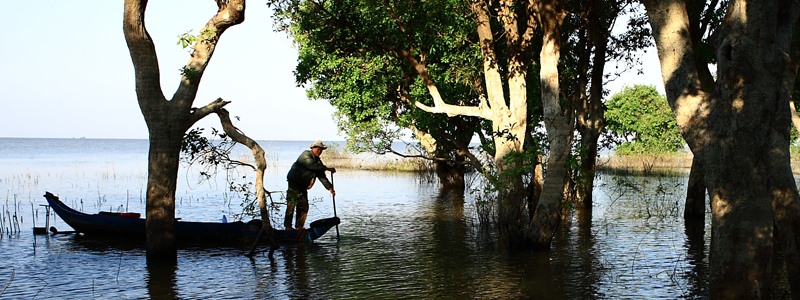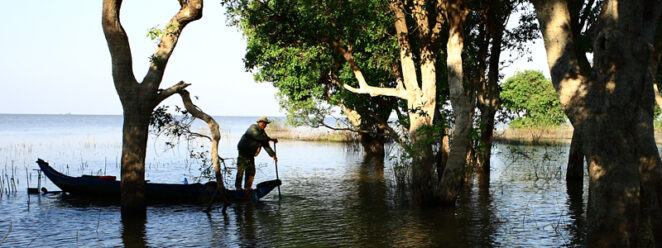Case-study /
Vulnerability assessment of livelihoods in Lower Mekong Basin: Adaptation options for enhancing capacity of people living in the most vulnerable flood-prone areas in Cambodia and Vietnam


Adaptation challenge
- In Vietnam’s Mekong Delta, key plans, policies and regulations for flood management are ambiguous and often not directly applicable to the local context especially to support local people’s livelihoods.
- Local-level government agencies cannot implement policies effectively due to the inherent policy ambiguity.
- Flood management efforts by state agencies are fragmented and confusing given many sectoral policies (e.g. agricultural policy, etc.) and line agency responsibilities making implementation of these policies a barrier to effective flood management.
- Proper assessment of local livelihood vulnerability remains a challenge.
- Development activities initiated for coping with flood disasters often ignore the needs of people’s livelihoods and end up worsening flood-related vulnerability and poverty.
Expected outputs
The SUMERNET study used a livelihood vulnerability index (LVI) to analyze five livelihood assets and differences in vulnerability patterns and develop appropriate policies at the provincial level. The assessment of livelihood assets helped to identify the key factors that caused livelihood vulnerability and to understand people’s living conditions in the flood prone areas. The assessment has helped in providing policy-makers and community-based organizations ways to monitor vulnerability, and to evaluate potential program or policy effectiveness by introducing scenarios into the LVI model for baseline comparison in flood areas.
Timescale of project
2011-2012
Scope
Cambodia
Focal point
Dr. Seak Sophat Deputy Head, Department of Environmental Science Royal University of Phnom Penh, Cambodia Email: seak.sophat@rupp.edu.kh
Partners
Nguyen Duy Can, Seak Sophat, Vo Hong Tu, Chu Thai Hoanh
Can Tho University, Royal University of Phnom Penh
